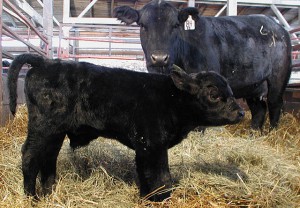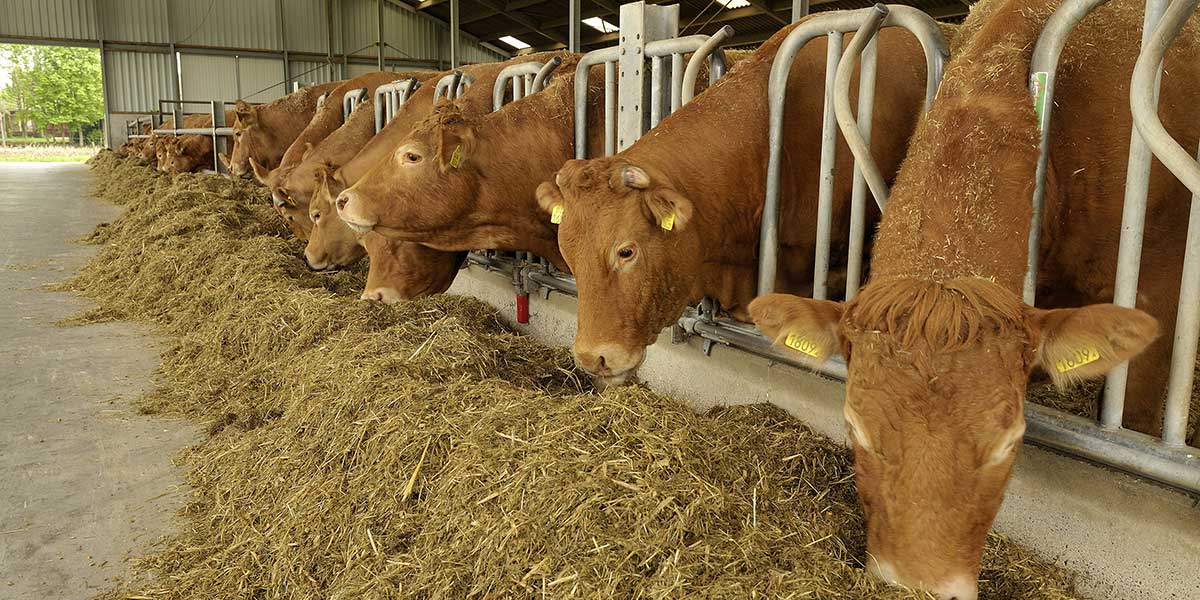Last week, we talked about some general tips for raising your cattle and making sure that you have the infrastructure in place to make sure they stay healthy. This week, we’ll be expanding on that with some more tips on maintaining your herd and what to do to get your beef cows ready for market.

Feeding your Cattle
Hay – Good legume hay will produce great beef and usually help turn a profit. When feeding your cattle hay, you’ll usually go through about half to three-quarter of a ton of hay when fattening them for slaughter or sale. For types of hay, alfalfa is kings when it comes to beef cattle. It’s usually the standard when comparing other hay, but, it is also the most expensive hay to purchase if you’re buying. Under most conditions, it produces a greater yield than other hay types as well as produces more per acre than most common crops. Additionally, alfalfa produces more than twice as much digestible protein as mixed clover-timothy hay, a common hay mix used by farmers, and more than three times as much protein as corn as well as it’s richer in vitamins and minerals. A good rule of thumb if you plan on using alfalfa hay is to mix in some timothy or other grasses with the alfalfa. This will help reduce bloating and allow the meadow to last longer.
While alfalfa is the best hay, there are other good legume and legume-grass hays that make very close seconds to the king of hay. A few examples are red clover, sweet clover, and soybeans. Interestingly enough, soybeans are a great hay to use when we have a late, wet spring and the seeds get into the ground late.
Ground Feed – When doing ground feed, corn is king. If you plan on supplementing your hay feeding with ground you might want to consider mixing your corn feed formula. Whatever you do, make sure that salt is included in your feed formula. All cattle require salt to stay healthy.
Keeping your Cattle Healthy
Finally, you’re going to want to keep your cattle healthy. Providing your cattle medical care when they’re sick or hurt is great, but being proactive and preventing the sickness or injury is even better. Here are some general tips to make sure that your herd stays healthy.
Make sure to provide a stress-free environment for your cattle. Stress makes us run ragged and makes us more susceptible to sickness, and cattle are no different when dealing with stress. So, when interacting with your herd make sure to stay calm and don’t rush, this isn’t a sprint, it’s a marathon. Additionally, make sure to create a vaccination schedule and keep to it. This will help make sure that all of your cattle stay healthy and you don’t have to worry about any respiratory or other illnesses spreading through your herd.
Raising and maintaining cattle is a lot of hard work, and cattle don’t take a vacation. If a calf is coming on Christmas you’re going to need to deliver it on Christmas. However, for all the hard work that you put in you get it reciprocated in spades. Even if you don’t have a desire to raise cattle for sale, you can still raise the best beef you’ll have ever tasted, and you’ll know exactly what went into it, and more importantly, what didn’t.
Lisa Podwirny is the owner of Ketchum Mfg. Connect with her on Google+!






